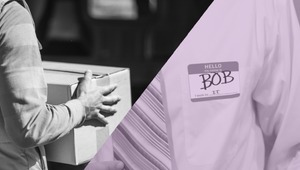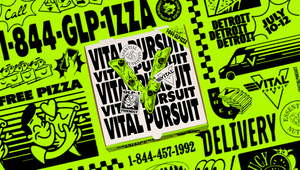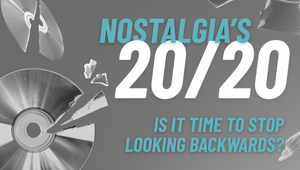
Intel and Dell Technologies Head into the World of Animal Crossing to Promote E-Cycling

Intel and Dell Technologies are teaching people to properly 'e-cycle' their electronic waste (e-waste) with an interactive experience in Nintendo’s Animal Crossing.
Last year's e-waste totaled substantially more than the weight of all adults in Europe, or as much as 350 cruise ships the size of the Queen Mary 2, or 78 miles of e-waste (Source: United Nations University).
Launching on National Recycling Day (Nov 15th), players can visit the eCycleLand island and turn in the Rusted Parts found in the game for a sought-after item. While in eCycleLand, users will be educated about the real ways they can e-cycle, in partnership with Dell:
At the start of the tour, the visitor will scan a QR code to access an unlisted YouTube video that pairs with the walking tour around the island (much like a museum self-guided tour). This post is for auditory use, meaning it will not need to be watched, but just listened to as the visitor moves from station to station.
o Station 1: What is e-waste? A brief intro to e-waste and why it’s a problem
o Station 2: What is e-cycling? A brief intro to e-cycling and how it combats the problem of e-waste
o Station 3: What can be e-cycled? A gamified explanation of what can/cannot be e-cycled
1. At the fourth and final station, players receive information on programs they can use to e-cycle in real life
2. Players receive instructions on how to e-cycle their old devices, no matter the brand
3. Eligible devices can be shipped to Dell at no cost and traded in for credit towards new electronics. Dell will also e-cycle ineligible devices for free.
Intel’s Animal Crossing e-cycling education integration is just one of many brand sustainability efforts in progress. As part of Intel’s commitment to progress against climate change, the company continuously looks for ways to develop more sustainable technology solutions and collaborate with other organizations to advance best practices in corporate responsibility worldwide.
John Coyne, VP/GM, brand, creative and media at Intel, siad: “The Animal Crossing integration from Intel and Dell is designed to educate consumers about e-waste and the benefits of e-cycling. These practices not only keep e-waste out of the landfill but can also extend the life of used products and directly support equitable access to technology. Our industry has the power and the responsibility to deliver a future of more sustainable computing. When we embrace this new era of shared corporate responsibility, we can more quickly drive meaningful change as we work to tackle our world’s greatest challenges.”
Alli Pierce, global chief creative officer for Intel, VMLY&R, said: “Our virtual lives and real lives are so connected now—even the games we play reflect our real-life problems. Animal Crossing, despite being a utopian world, still clutters its beaches with rusted parts that have no practical use in the game. With Intel and Dell’s eCycleLand, we’re showing people that old and broken tech can take on new life through e-cycling in both the virtual and real world.”















